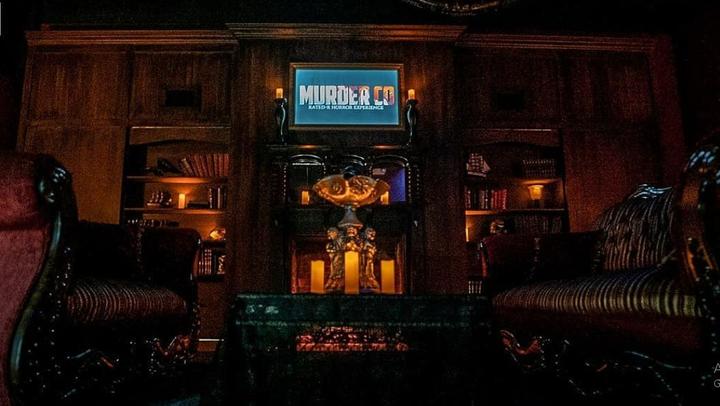Group Strategies: How to Collaborate Effectively in a Retreat Area
Browsing the intricacies of an escape area necessitates even more than simple interest; it requires a well-coordinated approach based in clear communication, tactical function assignments, and experienced time monitoring. Teams have to proactively listen to each member's insights, appoint duties that align with specific staminas, and maintain regular check-ins to ensure emphasis and avoid redundancy. By promoting an environment that values communication and versatility, teams can considerably increase their performance and success rates. The subtleties of these strategies can transform the experience, yet exactly how exactly can they be implemented to take full advantage of the potential for success?
Establish Clear Interaction

To help with clear interaction, it is vital to mark a main point of get in touch with for details circulation. Brief, focused updates from each group participant can maintain the team informed without frustrating them with info.

Designate Roles Purposefully
While clear interaction establishes the foundation for efficient team effort, designating functions strategically makes certain that each team participant's staminas are utilized properly. In an escape room circumstance, the time-sensitive and complex nature of obstacles necessitates a well-organized strategy to task delegation. By identifying and leveraging individual expertises, teams can maximize their analytical abilities and boost general performance.
First, evaluate the one-of-a-kind skills and qualities of each participant. A person with a keen eye for detail might excel in discovering concealed objects, while a logical thinker might be much better matched to fixing puzzles. It's similarly vital to have a leader that can supervise progress, handle the timeline, and make definitive telephone calls when necessary. This duty frequently needs strong business and interpersonal skills.
2nd, ensure that roles are flexible and versatile. As brand-new difficulties arise, the team has to have the ability to pivot, reapportioning jobs as called for. This versatility assists preserve momentum and protects against bottlenecks that could occur as a result of inflexible role tasks.
Eventually, a calculated strategy to duty assignment not just optimizes the staminas of each employee yet additionally promotes a cohesive environment, driving the group in this the direction of a successful escape.
Make Use Of Diverse Abilities
Acknowledging and harnessing the varied skills within your group can considerably elevate your efficiency in a getaway room. Each employee brings special strengths to the table, and effectively leveraging these capabilities can speed up look at here now analytic and improve total efficiency. As an example, an employee with strong logical skills could excel at decoding intricate codes or patterns, while another with eager empirical capacities may swiftly spot concealed clues that might ignore.
Urge group participants to articulate their insights and ideas promptly, guaranteeing that all potential remedies are taken into consideration. In addition, appointing tasks that align with each participant's toughness can protect against traffic jams and make sure that progress is continual.
Additionally, variety in skills often equates to variety in believing styles, which is indispensable in an escape space setting. While some challenges might need sensible thinking and precision, others might gain from creative and lateral thinking. By identifying and leveraging this variety, groups can resolve a wider range of challenges better, thus increasing their opportunities of an effective retreat.
Manage Time Successfully

Recognize noticeable problems and separate jobs based on team participants' strengths, ensuring that no one is idle. This technique can assist keep the team concentrated and avoid time from slipping away unnoticed.
Additionally, stay clear of passage vision. If a puzzle is taking as well long, rotate group members or proceed to one more difficulty, returning later with fresh viewpoints. Communication is paramount-- maintain everybody updated on fixed puzzles and continuing to be tasks to avoid repetitive efforts.
Last but not least, utilize any kind of tips or clues moderately but tactically - best escape room. Knowing when to you could try here request assistance can conserve important time. By sticking to these time management concepts, teams can considerably enhance their chances of a successful and pleasurable escape space experience
Debrief and Reflect
Representation is a vital aspect of team growth and enhancement in the context of retreat spaces. When the challenge is finished, whether efficiently or not, it is critical for the group to participate in a structured debriefing session. This procedure enables staff member to assess their performance, identify staminas, and pinpoint areas for enhancement.
Start the debrief by reviewing what went well. Highlight details instances of effective communication, analytical, and cooperation. Acknowledging these favorable actions enhances them and urges their rep in future difficulties.
Talk about moments of confusion, miscommunication, or ineffective strategies. Urge an open and constructive dialogue where team participants can share their viewpoints without worry of objection.
Verdict
Finally, effective partnership in a retreat space is predicated upon clear communication, critical duty projects, the reliable use of diverse skills, and competent time monitoring. Regular check-ins and organized debriefings are necessary for preserving focus and promoting continual enhancement. By creating a natural and flexible group environment, the possibility of successfully resolving challenges and achieving the purpose of getting away the space is significantly enhanced. This strategy not only ensures success yet likewise promotes cumulative growth and learning.